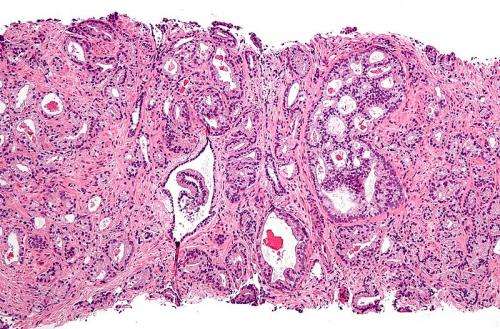Team works to determine why some prostate cancer patients experience more hot flashes

Androgen deprivation therapy (ADT) is a common treatment option for patients with advanced stage prostate cancer. But nearly 80 percent of patients who receive ADT report experiencing hot flashes during and after treatment. Moffitt Cancer Center researchers are working to determine what genetic factors and other characteristics might make prostate cancer patients more likely to experience hot flashes during and after therapy.
Cancer therapies often are associated with unwanted side effects. Some side effects can be so debilitating that patients decide to quit therapy and risk disease recurrence or progression. More than 25 percent of prostate cancer patients report that hot flashes are the most distressing side effect of ADT. Often, patients experience hot flashes for years after ADT is complete. Researchers wanted to determine which patients were more likely to experience hot flashes to help physicians make treatment decisions.
The researchers compared 60 prostate cancer patients on ADT to 83 prostate cancer patients who did not have ADT and 86 men without cancer. They discovered that patients on ADT experienced significantly more hot flashes at 6 months and 12 months after therapy initiation than the other two control groups combined. The severity of the hot flashes also increased over time in the group of men receiving ADT. The patients reported that the hot flashes interfered with their daily lives by affecting leisure activities, sleep and general quality of life.
The researchers analyzed patient characteristics and their DNA to determine which factors were associated with an increase of hot flashes. They discovered that men who were younger and had a lower body mass index experienced more hot flashes and felt more interference with their daily lives. The researchers also reported that the presence of certain genes involved in processes such as immune function, nerve impulse transmission, blood vessel constriction and circadian rhythms were associated with an increased number of hot flashes.
"This study is a concrete step towards identifying which patients are more likely to experience these distressing symptoms," said Mayer Fishman, M.D., Ph.D., senior member of Moffitt's Genitourinary Oncology Program.
The study was published in the March 16 issue of The Journal of Urology.
More information: Journal of Urology, www.jurology.com/article/S0022-5347%2815%2903318-2/pdf

















